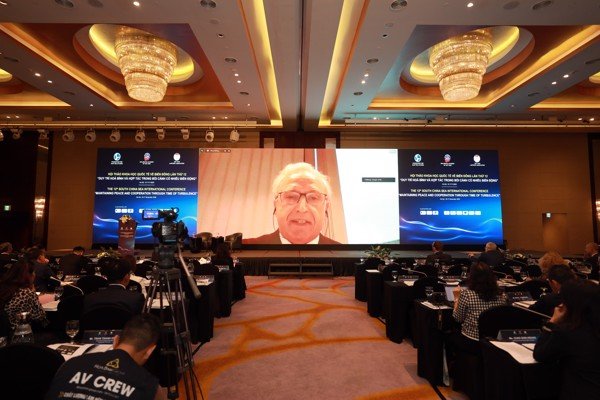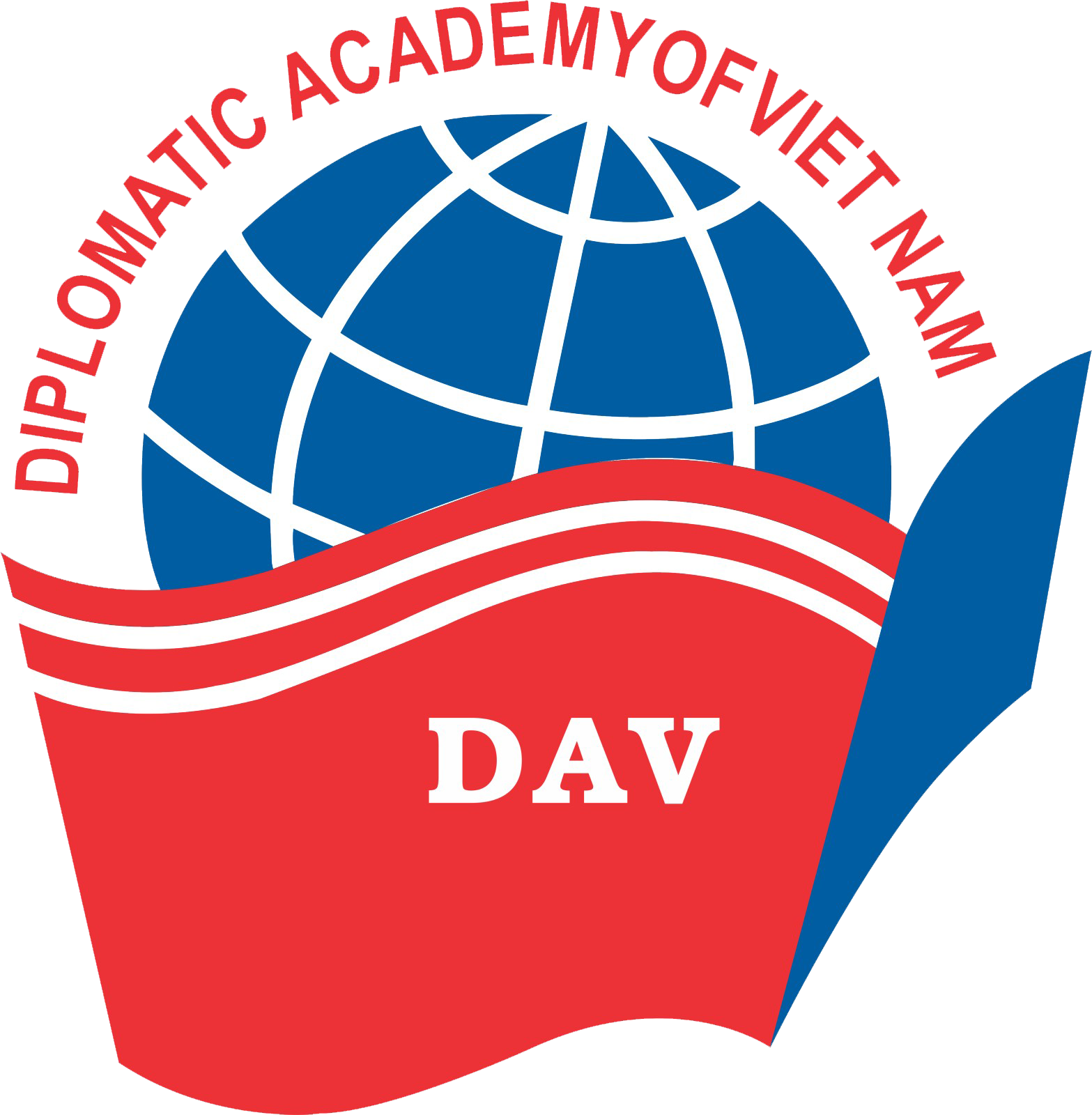
KEYNOTE ADDRESS BY REAR ADMIRAL JÜRGEN EHLE – SENIOR MILITARY ADVISOR TO EUROPEAN EXTERNAL ACTION (EEAS)

Ladies and gentlemen, glad to address you from Brussels.
It is an honour for me to represent the European Union at this very important conference and I would like to extend the best wishes of High Representative Josep Borrell to all of you.
Wish I were in beautiful Hanoi with many of you, and wish I had just had lunch like you, with delicious Vietnamese food!
Yes, the Covid-19 pandemic affects and constrains the way we live and the way we work. And yet, despite the pandemic, here at the European Union we are busy strengthening our Common Security and Defence Policy.
We are working on:
- Permanent Structured Cooperation (PESCO) between our Member States, which helps develop new defence capabilities – including promising maritime projects, for instance new anti-mine systems and fighting assets
- A new European Defence Fund with a budget of 7 billion euro in our new financial framework to promote the application of the latest technologies in the field of defence, including maritime capabilities
- A new Strategic Compass that will help define our security and defence priorities for future years
- Measures to improve the way we work with our partners who participate in Common Security and Defence Policy missions and operations
- And other projects to promote European and international security.
That’s all very well, you will say, but what about Asia and the South China Sea? What does the EU do there?
In Asia, the involvement of the EU has grown steadily in recent years.
Of course, the EU is interested in the stability of the region around the South China Sea, which is crucial for its trade flows. Around 40% of the EU’s foreign trade goes through the South China Sea. Thus, free sea lines of communication are paramount and essential for us in Europe.
In addition, we do not want to create bad precedents of illegal actions that could be replicated in other seas closer to our borders, for instance in the Arctic Sea or in the Azov Sea.
As you know, EU Member States France and Germany have issued strategies and guidelines on the Indo-Pacific region. The EU is currently exploring its approach to this region more broadly.
Since May 2018 the EU has a policy on security cooperation with this part of the world, more precisely EU Council Conclusions titled “Enhancing Security Cooperation in and with Asia”.
With its 2018 policy document, the EU decided to deepen security cooperation with its Asian partners and with ASEAN, particularly on
- maritime security,
- cyber security,
- counter terrorism,
- hybrid threats,
- conflict prevention,
- the proliferation of chemical biological radiological and nuclear weapons
- and the development of regional cooperative orders.
The EU has decided that this cooperation should become more operational.
It is in this context that in 2019 the EU signed a Framework Participation Agreement with Vietnam, which allows Vietnam to participate in EU Common Security and Defence Policy missions and operations around the world. The agreement came into force last May. We are looking forward to the planned participation of Vietnam in the EU Training Mission in the Central African Republic.
I was happy to meet the Vietnam delegation in our EEAS HQs in Brussels last year, and attended the signing ceremony with High Representative Federica Mogherini.
One of the main goals of the EU Council Conclusions on “Enhancing Security Cooperation in and with Asia” is to, I quote,
“Help strengthen the ability of ASEAN and its member states to better address traditional and non-traditional maritime security issues such as upholding freedom of navigation, fight against piracy, organised crime, Illegal Unreported and Unregulated (IUU) fishing, illegal trafficking and maritime pollution;”
This is in line with the deeply held principles of the EU. The EU is committed to upholding the rules-based international order through practical maritime cooperation, including cooperation on freedom of navigation and overflight, to secure sea-lines of communication and to protect the global maritime domain against all types of threat, traditional and non-traditional.
As EU High Representative Borrell underlined at the EU-ASEAN Ministerial Conference last September, I quote, “We cannot allow countries to unilaterally undermine international law and maritime security in the South China Sea, thereby representing a serious threat to the peaceful development of the region.”
The EU upholds the universal and unified character of the 1982 UN Convention on the Law of the Sea, which sets out the legal framework within which all activities in the oceans and seas must be carried out.
We support the idea of a Code of Conduct on the South China Sea, if the end product of negotiations is a fair, balanced and equitable document, based on a convergence of the interests of all stakeholders. If Code of Conduct does not fulfil these criteria, it is better to have no Code than a bad one.
The EU is itself with its 27 Member States a multilateral organisation and supports multilateral solutions to international issues. It has a well-developed and close relationship to ASEAN, extending to practical cooperation in many areas.
The EU-ASEAN Plan of Action (2018 – 2022) includes a chapter on maritime security cooperation, which reiterates the importance of respect for the rule of law and aims to combat sea piracy, armed robbery against ships, hijacking and arms smuggling, and to strengthen cooperation on maritime safety and search and rescue. The EU co-chairs two ASEAN Regional Forum Inter Sessional Meetings – the ISM on Maritime Security and the ISM on Counter Terrorism and Transnational Crime.
The EU entertains regular consultations on security and defence with the main Asian like-minded countries, including Vietnam. Topics range from cyber-security to non-proliferation, from peacekeeping to disaster management. These two-way exchanges help us share useful experience with our partners. They also help us deepen and refine the level of European awareness about the dynamic security environment in the wide Indo-Pacific region where we increasingly find shared interests.
Together with its Asian partners, we also tackle common challenges in other parts of the world such as piracy in the Horn of Africa. The joint naval activities between EU Naval Force Atalanta and Japan’s Maritime Self Defence Forces in the Gulf of Aden last month, to enforce the rules-based international order and freedom of navigation along the sea-lines of communication, are a good illustration and example of this cooperation.
The EU has extensive experience to share with its partners in Asia on crisis management, legal training, information exchange, implementation of international instruments, dispute settlements, peer-to-peer review and capacity building.
EU projects such as CRIMARIO II and the project titled “Enhancing Security Cooperation in and with Asia” support concrete cooperation activities on Maritime Domain Awareness and in other areas.
After a successful launch in the Western Indian Ocean, CRIMARIO II, the EU’s maritime security capacity building instrument, is now expanding to include Southeast Asia, offering partner countries the possibility to team up with the EU, with a view to enhancing maritime governance.
This will be achieved by offering potential partners targeted support, aimed at enhancing maritime domain awareness and interoperability, at both the national and regional level; facilitating the planning and conduct of coordinated interagency operations; and providing law enforcement capacity building through on scene and remote training, incorporating the use of software platforms, and table top exercises.
We have put into operation the project to “Enhance Security Cooperation in and with Asia” (ESIWA) earlier this year, with substantial extra support from Germany and France. This four-year project is but the latest example of how we are increasing our investment and engagement in the region, with our Member States, and expanding our ambitions to cooperate more closely in key areas of Maritime Security, Cyber Security, Counter-Terrorism and Crisis Management.
As part of this project, we have in Vietnam a Lt. Colonel working with the Vietnam Department of Peacekeeping Operations exchanging lessons learned, developing curricula and taking opportunities to build capacities in the region.
The EU is also deploying counter-terrorism experts and military advisors to its Delegations to many countries in Asia. This will allow the EU to play a greater role even on “hard security” matters. In addition, warships from the Navies of EU Member States are increasingly present in the South China Sea.
We are also developing a new operational concept, called Coordinated Maritime Presences (CMP). This new tool aims to strengthen maritime security awareness and promote international cooperation at sea. Under this concept, the Navies of participating EU Member States provide naval assets that take turns patrolling a given geographical region in a coordinated fashion. The first region where this instrument will be tested is the Gulf of Guinea in the Western coast of Africa. Potentially, this instrument could be used also in other parts of the world including the South China Sea in future years.
Ladies and Gentlemen,
I participated in the EU ASEAN Seminar on Security and Defence in Djakarta in November 2018. We also discussed maritime security, and I enjoyed the fruitful discussions we shared. We should organize such events more often.
The EU truly has a vast array of tools to put at the disposal of its partners, both civilian and military. We call this endeavour Integrated Approach.
As High Representative Borrell put it, the EU is a trustworthy, reliable and predictable partner for Asian countries. It has no hidden agenda, only an open and public one:
The EU wants to ensure that its trading system, prosperity and security – as well as those of its partners – are not governed by the principle that “might makes right” but by the rule of law.
You can all count on that, and you can count on continued engagement of the European Union in Asian security, with a strong focus on maritime security, including the South China Sea.
Thank you very much for your attention.
